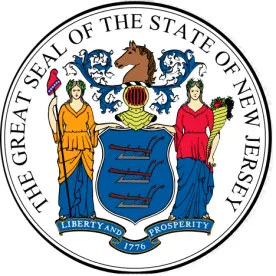On March 18, 2019, Governor Phil Murphy signed into law Senate Bill 121 (S121), which amends the New Jersey Law Against Discrimination (NJLAD) in two important respects, effective immediately.
First, the law provides that confidentiality provisions in “any employment contract or settlement agreement” that would prohibit current or former employees from revealing “the details relating to a claim of discrimination, retaliation, or harassment,” are “deemed against public policy and unenforceable.” That is, it renders unenforceable nondisclosure provisions in settlement agreements that resolve discrimination-related claims. The law applies to all contracts and settlement agreements entered into, renewed, modified, or amended on or after March 18, 2019, and so does not affect agreements entered into before that date.
Second, the new law states that any provision in an employment contract “that waives any substantive or procedural right or remedy relating to a claim of discrimination, retaliation, or harassment shall be deemed “against public policy and unenforceable” and that employees cannot prospectively waive any other right or remedy under the NJLAD, other statute, or case law. Further, the amendment provides that no person (or employer) can take retaliatory action against any applicant or employee for refusing to enter into such a contract. While the new law carefully avoids using the word “arbitration,” its clear purpose is to prevent employers from requiring employees to sign arbitration agreements (though it expressly exempts collective bargaining agreements from its scope) and, possibly, class action waivers, jury waivers, and waivers or limitations of certain kinds of damages. To the extent that the new law does purport to bar or prevent enforcement of arbitration agreements, it likely is preempted by the Federal Arbitration Act.
The law further provides that any person who attempts to enforce a provision that is deemed to be against public policy and unenforceable by this law shall be liable to the employee for reasonable attorneys’ fees and costs incurred in resisting it. Again, to the extent that this purports to be applicable to arbitration provisions, it likely is preempted by the Federal Arbitration Act.
The immediate point of concern for employers may be the prohibition on confidentiality provisions in employment contracts and settlement agreements. Unfortunately, the language of the new law is not a model of clarity. For example, the terms “employment contract” and “settlement agreement” are not defined anywhere in the statute. Further, while the language “the details relating to a claim” likely is not meant to include the fact of settlement and/or its monetary terms and other provisions (as opposed to the underlying allegations), the language of the law could have been clearer. What is clear, however, is that when determining the monetary value of a separation agreement or settlement—or whether to settle at all—an employer may have to reckon with the possibility that all details eventually will become public—possibly before the ink is dry on the settlement.
In addition, New Jersey-based employers entering into settlements with employees in other states may want to take care when using language to the effect that New Jersey law will govern the agreements. Such language may be deemed to incorporate provisions of this new law into an agreement with a person who otherwise would not be covered by the law.





 />i
/>i
